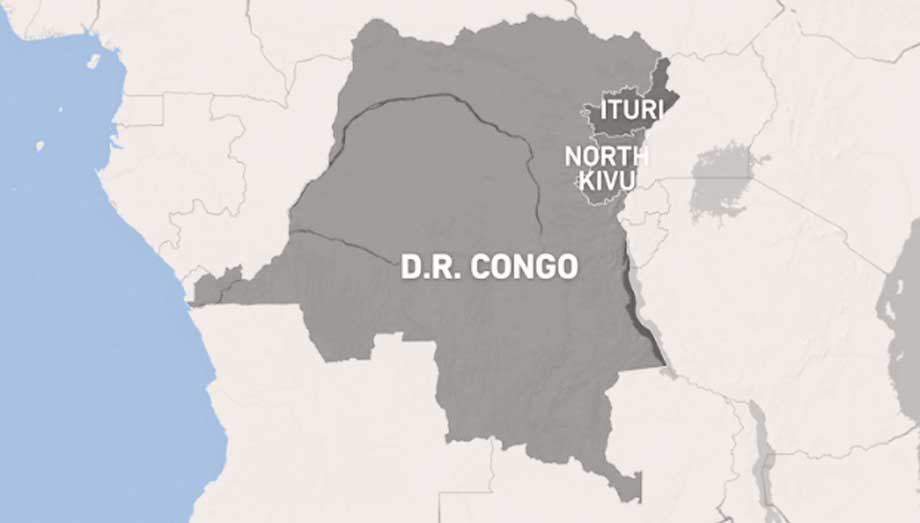Democratic Republic of Congo (DRC) President Felix Tshisekedi declared a state of siege late Friday (April 30) in the eastern violence-wracked provinces of Ituri and North Kivu.
A surge in attacks by armed groups and escalating inter-communal violence in the east have killed more than 300 people since the start of the year.
The most recent attacks took place early on Saturday (May 1) when militants killed at least 19 people, including 10 soldiers, in raids on two villages in North Kivu’s regional hub of Beni, local authorities said.
“Taking into account the gravity of the situation… the president informed the cabinet of his decision to proclaim a state of siege in the provinces of North Kivu and Ituri,” said
government spokesman Patrick Muyaya.
Under DRC’s constitution, the president can declare either a state of emergency or a state of siege “if severe circumstances immediately threaten the independence or integrity of the national territory, or if they interrupt the regular functioning of institutions”.
The Congolese Association for Access to Justice said it welcomed the move but called on parliament urgently to pass legislation to “prevent abuses” which might stem from the imposition of a siege.
A Ugandan insurgent faction active in eastern Congo since the 1990s called the Allied Democratic Forces (ADF) is believed to be responsible for much of the recent bloodshed.
The ADF has killed more than 1,200 civilians in the Beni area alone since 2017, according to a monitor called the Kivu Security Tracker (KST). The army began operations against the ADF in late 2019, but has not been able to put a stop to the massacres of civilians.
The violence has fuelled a humanitarian crisis with more than 1.6 million people displaced in Ituri out of a total population of 5.7 million people, UNICEF said in April. Some 2.8 million people there are in need of some form of emergency assistance, it said.
An estimated 122 armed groups of varying sizes operate in mineral-rich eastern DRC, many a legacy of catastrophic regional wars in the 1990s.
With reporting by AFP, Daily Monitor Uganda, Reuters








